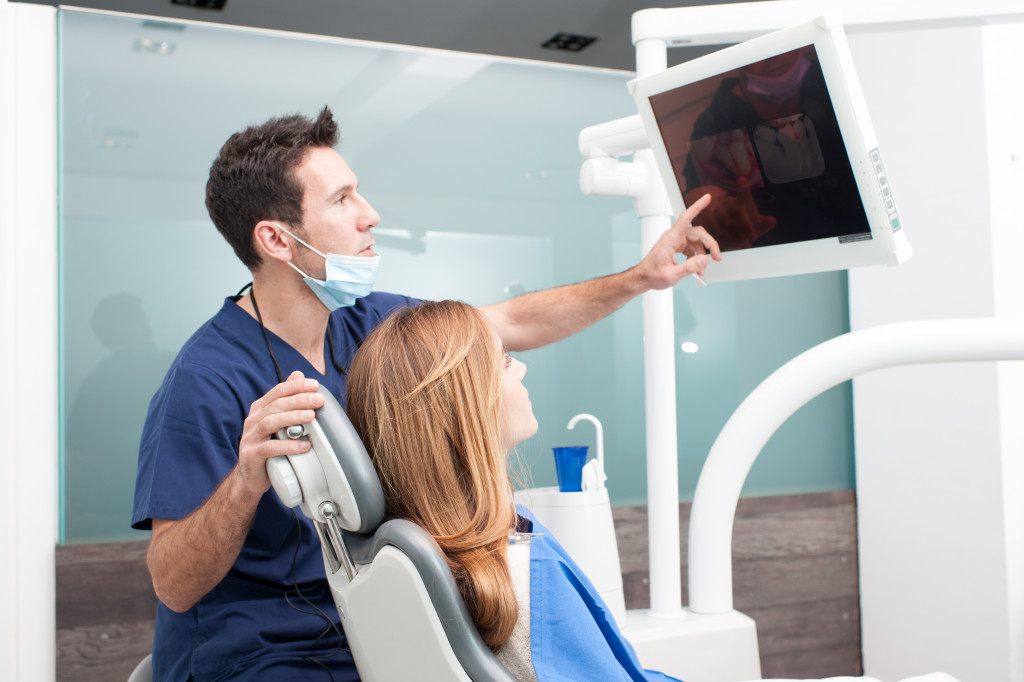Dental Anxiety: What Is It & How To Manage It

Dental anxiety is a fear of going to the dentist, which many different things can trigger. It’s common in children, but adults can experience it too. When you visit the dentist, there are specific procedures performed that might make you feel anxious- like finding out if there are cavities or having your teeth drilled down to remove any decay.
There are many ways to manage dental anxiety so that it doesn’t prevent you from getting the dental care that you need. This blog post will discuss what dental anxiety is, some of the common triggers, and how to manage it.
What Is Dental Anxiety?
Dental anxiety is a type of fear or apprehension that people may feel when visiting the dentist. It is a widespread problem, and studies have shown that as many as 1 in 3 people may experience some form of dental anxiety.
It is essential to understand that dental anxiety is different from dental fear. Dental fear is a more intense form of anxiety that may cause people to avoid going to the dentist altogether. People with dental anxiety may still visit the dentist but may feel nervous or anxious about doing so.
What Causes Dental Anxiety?
Many factors can contribute to dental anxiety. Here are some of the most common:
Fear of Pain
One of the most common triggers of dental anxiety is the fear of pain. This can be related to a previous bad experience at the dentist or simply the fear of having needles or drills used in your mouth.
Fear of the Unknown
Another common trigger of dental anxiety is the fear of the unknown. This can be related to not knowing what will happen during your appointment or feeling like you have no control over the situation.
Fear of Embarrassment
Some people may feel anxious about going to the dentist because they are embarrassed about their teeth or oral hygiene. This is especially common in children who may worry about the dentist’s thinking of them.
How to Manage Dental Anxiety
There are many ways to manage dental anxiety so that it doesn’t prevent you from getting the dental care you need. Here are some tips:
1. Talk to Your Dentist
The best way to overcome dental anxiety is to talk to your dentist about it. This will help them understand what triggers your anxiety and how they can help you feel more comfortable during your appointment.
Your dentist may also be able to recommend some relaxation techniques or coping mechanisms that can help you manage your anxiety—for example, deep breathing exercises or listening to music during your appointment.

2. Visit the Dentist Regularly
Another way to manage dental anxiety is to visit the dentist regularly. This will help you get used to the environment and the procedures that are performed. It will also help build trust with your dentist to feel more comfortable during your appointments.
3. Know the Required Information About Dental Procedures
One of the leading causes of dental anxiety is the fear of the unknown. Knowing what to expect during your appointment will help you feel more relaxed and in control. Your dentist should be able to provide you with all the information you need about the procedures performed. For instance, if you are going for a replacement tooth procedure, your dentist should tell you what will be involved and how long it will take.
3. Use Visualization Techniques
Visualization techniques can be very helpful for managing dental anxiety. This involves picturing yourself in a calm and relaxing place while you are at the dentist. This can help take your mind off of the procedure and make you feel more relaxed.
4. Try Sedation Dentistry
If your anxiety is severe, your dentist may recommend sedation dentistry. This involves taking medication before your appointment to help you relax. There are different types of sedation dentistry, and your dentist will recommend the best option for you based on your level of anxiety and the procedure that you are having done.
5. Seek Professional Help
If your anxiety impacts your daily life or prevents you from getting the dental care you need, it is essential to seek professional help. There are many resources available to help you manage your anxiety. If required, your dentist can provide you with information about these resources or refer you to a mental health professional.
Dental anxiety is a prevalent problem, but there are many ways that you can manage it. Talk to your dentist about your anxiety and what you can do to make your appointments more comfortable. Try some of the relaxation techniques or available coping mechanisms. And if your anxiety is severe, don’t hesitate to seek professional help.




